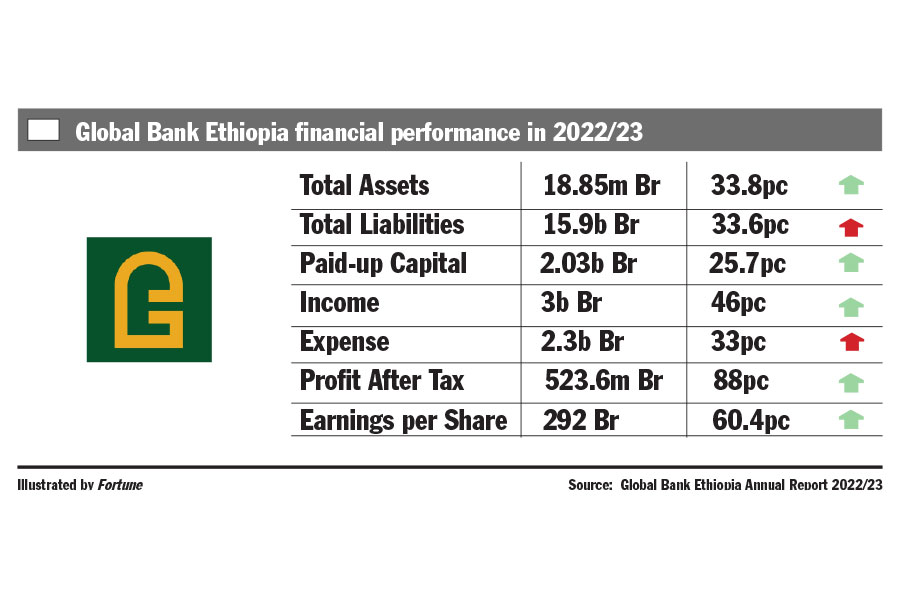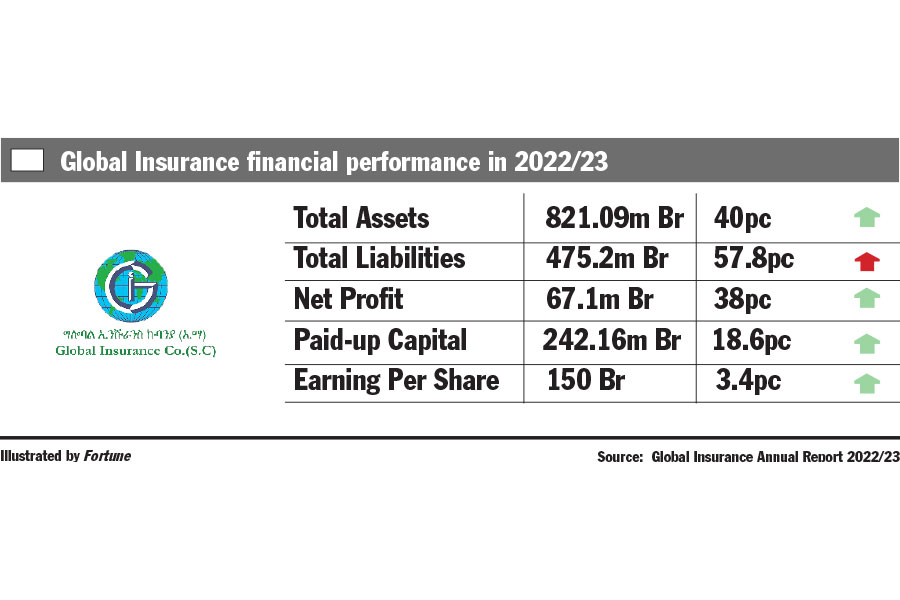
Viewpoints | Mar 11,2023
Jul 15 , 2023
By Bill Gates , Bjorn Lomborg
The "Global Goals" are a phenomenal idea. They are what happened when the U.N. came together and said: “Here are the world’s biggest problems, and here is how we are going to measure progress on them.” The 17 goals include promises to end extreme poverty and hunger, fix climate change and education, and reduce inequality and corruption.
This year is the midpoint between the start of the goals, in 2016, and 2030, when they are supposed to be accomplished — and while the goals have done a great deal of good, the world is falling short on nearly all of them. This is the perfect time to assess the Global Goals (also known as the Sustainable Development Goals), recognize what is working, admit what is not working, and refine our approach so we can do the most good for the people most in need.
Let us start with something that is working very well.
The beauty of the goals is that they forced the world to agree on what matters and on the measures of progress. These agreements, in turn, are driving action: governments, foundations, and other funders have made strong commitments in aid and other forms of support for the world’s poorest, using the goals to guide where they spend the money. As the saying goes, “What gets measured gets managed.”
Here is the problem: The Global Goals are too much of a good thing. The 17 commitments are accompanied by a huge number of targets—169, to be exact.
Having so many targets would not necessarily be an issue if the world were stepping up to fund all of them. But it is not. Despite record commitments from donors, one report recently found that the funding for the goals will be short at least 10 to 15 trillion dollars each year for the rest of this decade. That is roughly equivalent to all of the taxes collected by every government in the world.
This massive shortfall calls for a two-pronged approach.
First: Do whatever is possible to shrink the gap. Donors need to meet and even exceed their commitments to meet the goals. Although overall foreign aid went up in 2022 for the fourth straight year, most of this increase amounted to refugee and humanitarian aid required by Russia’s war on Ukraine. Assistance for the least well-off countries actually declined.
There are some notable exceptions.
France, the Netherlands, the United States, and China have recently increased their funding for health in low-income countries. The Gates Foundation is on track to increase its total giving by 50pc—to nine billion dollars a year by 2026—with a focus on health and development. We hope other funders follow suit.
Second, even as donors step up, all of us need to recognize that inflation and rising interest rates are stretching governments to the limit. The sad reality is that the world is not going to find 10 trillion dollars more each year for the Global Goals. We need to identify the best buys in development—the investments that will do the most good with the funding that is available.
This does not need to involve guesswork. Thanks to decades of research into what works, we can use data to find the best interventions. For example, in a recent project led by Bjorn and featured in his new book, "Best Things First", economists identified 12 highly efficient policies that deliver enormous benefits at relatively low costs.
They found that simple ways to improve the conditions around births can save the lives of 166,000 mothers and 1.2 million newborns each year, at less than five billion dollars annually. And an additional 5.5 billion dollars per year spent on agricultural research and development for the poor would reduce malnutrition, help farmers thrive in a warming climate, and drive down food costs—delivering long-term benefits worth 184 billion dollars annually.
Other recommendations include efforts to prevent tuberculosis and malaria, immunize more children, improve education, and strengthen land ownership rights.
In all, the project found that the 12 policies would save more than four million lives a year by 2030 and generate annual economic benefits worth 1.1 trillion dollars for low- and lower-middle income countries. At a cost of about 35 billion dollars per year (in 2023 dollars) between now and 2030, that is a return of roughly 52 times the investment.
But the principles are even more important than any particular policies.
First: Let us recommit to funding work on the Global Goals, because it is saving lives and helping people escape extreme poverty. And second: Let’s acknowledge that the need is greater than the available funding, which means we need to focus on the efforts that will have the most impact. With these principles in mind, we can make sure that the Global Goals accomplish the greatest good.
PUBLISHED ON
Jul 15,2023 [ VOL
24 , NO
1211]

Viewpoints | Mar 11,2023

Fortune News | Jan 02,2021

Commentaries | Dec 09,2023


Viewpoints | Jul 24,2021

Radar | Dec 05,2020

Viewpoints | Oct 12,2024

Viewpoints | Nov 29,2020

Commentaries | Nov 21,2020

News Analysis | Jun 08,2024

My Opinion | 131819 Views | Aug 14,2021

My Opinion | 128203 Views | Aug 21,2021

My Opinion | 126147 Views | Sep 10,2021

My Opinion | 123767 Views | Aug 07,2021

Dec 22 , 2024 . By TIZITA SHEWAFERAW
Charged with transforming colossal state-owned enterprises into modern and competitiv...

Aug 18 , 2024 . By AKSAH ITALO
Although predictable Yonas Zerihun's job in the ride-hailing service is not immune to...

Jul 28 , 2024 . By TIZITA SHEWAFERAW
Unhabitual, perhaps too many, Samuel Gebreyohannes, 38, used to occasionally enjoy a couple of beers at breakfast. However, he recently swit...

Jul 13 , 2024 . By AKSAH ITALO
Investors who rely on tractors, trucks, and field vehicles for commuting, transporting commodities, and f...

Jul 5 , 2025
Six years ago, Ethiopia was the darling of international liberal commentators. A year...

Jun 28 , 2025
Meseret Damtie, the assertive auditor general, has never been shy about naming names...

Jun 21 , 2025
A well-worn adage says, “Budget is not destiny, but it is direction.” Examining t...

Jun 14 , 2025
Yet again, the Horn of Africa is bracing for trouble. A region already frayed by wars...

Jul 6 , 2025 . By BEZAWIT HULUAGER
The federal legislature gave Prime Minister Abiy Ahmed (PhD) what he wanted: a 1.9 tr...

Jul 6 , 2025 . By YITBAREK GETACHEW
In a city rising skyward at breakneck speed, a reckoning has arrived. Authorities in...

Jul 6 , 2025 . By NAHOM AYELE
A landmark directive from the Ministry of Finance signals a paradigm shift in the cou...

Jul 6 , 2025 . By NAHOM AYELE
Awash Bank has announced plans to establish a dedicated investment banking subsidiary...